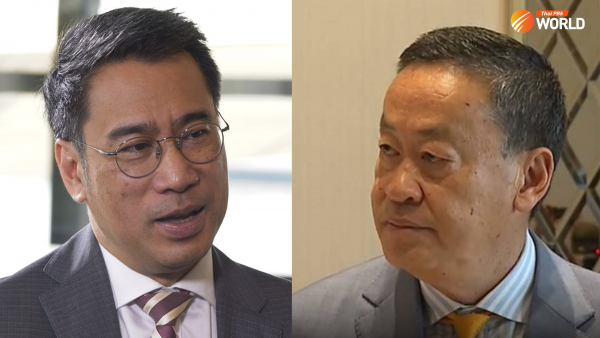Foreign business leaders urge clarity and stability
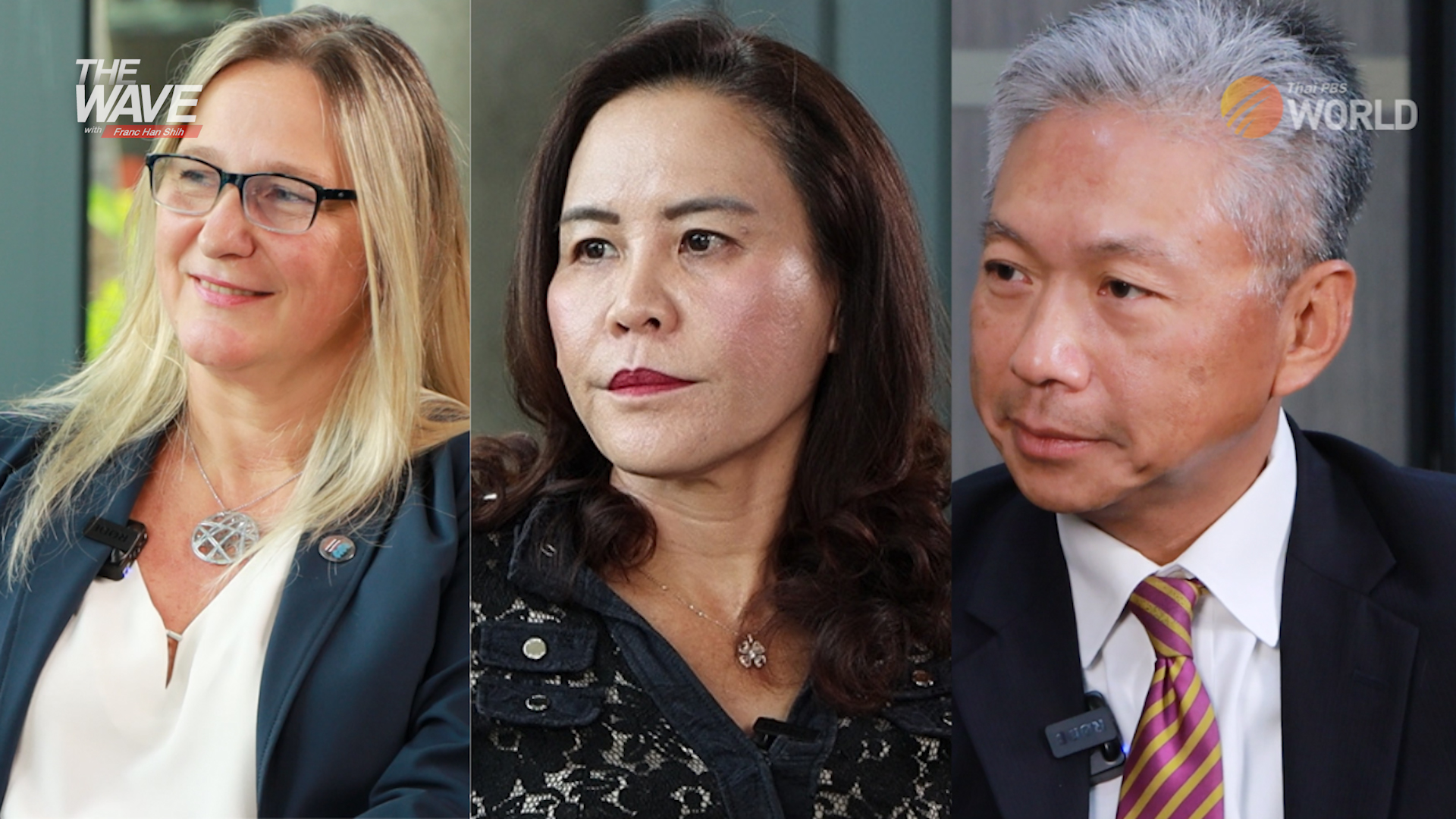
As the Srettha government begins implementing its stimulus packages, aimed at revitalising Thailand’s economy, members of the foreign business community here have reiterated their call for political stability and regulatory transparency, which they see as essential in attracting investment.
The much-publicised “digital wallet” scheme has received their support, but that comes with advice for caution, especially as far as transparency is concerned.
In an interview with Thai PBS World, Vibeke Lyssand Leirvag, Chairwoman of the Joint Foreign Chamber of Commerce, stressed that transparency in implementing the policy is paramount.
“The digital wallet scheme must be fully digital and completely transparent, despite potential challenges, especially for the elderly. This policy has the potential to enhance domestic purchasing power, but it must be implemented with full transparency,” Leirvag said.
Foreign investors want to see concrete plans, especially as far as the funding of the scheme is concerned, from the government, according to President of American Chamber of Commerce, Mook Pibuldham.
As much as 560 billion baht will be needed to finance the digital wallet scheme but, so far, the government has been ambiguous as to the source of funding. “There are many questions over the source of funding and Srettha’s government has not clarified the framework of the scheme,” Mook said.
Mook also expressed concern about the use of blockchain to manage the scheme, as it would need time and budget.
“If the government launches the digital wallet scheme too quickly, there would be a lot of operational issues. Srettha’s government should explain more to the public. Leaving unanswered questions, which could cause market volatility and affect stock performance, are not beneficial for business or the public,’’ she said.
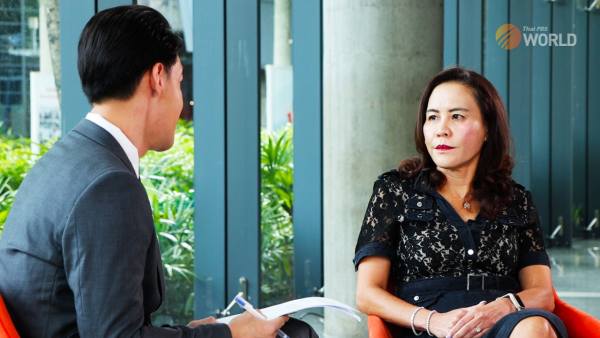
Shortage of labour is another exigent task to which the Srettha government should find a solution to. Mook emphasised that new foreign investors make comparative evaluations of the sufficiency of the labour markets in Thailand, Vietnam, and Malaysia.
While welcoming the visa-free policy for tourists from China and Kazakhstan, to boost tourism, Leirvag suggested that the Thai government should consider simplifying visa rules for visitors involved in meetings, conferences and exhibitions, known as the MICE industry.
“Today, Thailand is regaining the tourism, but will it be the same as before? This is the key area on which the government should focus. The government should plan new initiatives for different types of tourism. Thailand is renowned for wellness and health tourism and we must adapt to cater to new types of tourists,” Leirvag said.
“While the government’s fast-track visa policy for exhibitors is commendable, it should also consider the necessity of work permits, in certain cases, for booth setup and product sales at exhibitions. Both visa and work permit policies should be reviewed,” she said.
The Joint Foreign Chamber of Commerce is an umbrella organisation representing 34 foreign chambers of commerce and over 9,000 companies. Leirvag said their members want to see Prime Minister Srettha expedite digitalisation efforts, as well as regulatory and education reforms.
“Streamlining the entire government into a single online platform is essential, to reduce bureaucratic delays. Education should not be confined to schools, but should encompass lifelong learning, including reskilling, upskilling and acquiring new skills, to align with evolving industries,” she said.
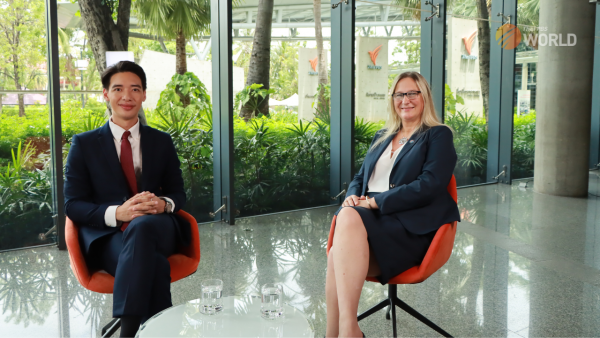
Climate change is pivotal for Thailand’s competitiveness in the region. Leirvag warned that, without the government’s unwavering commitment to achieving net-zero greenhouse gas emissions, Thailand would struggle to remain competitive with its neighbours.
“The Srettha government should take serious action to tackle climate change issues. Setting a goal for clean air policy implementation by 2065 is too distant. We need to expedite these efforts and demonstrate genuine commitment. The new government should also cooperate with ASEAN members on environmental impacts. For example, PM 2.5 is not all due to bad traffic in Bangkok. This problem relates to agricultural activities in Thailand and in neighbouring countries,” she said.
Furthermore, Leirvag called attention to the increase in the minimum monthly salary to 25,000 baht per month for bachelor’s degree holders, a policy not included in Prime Minister Srettha’s policy statement. She stressed the need for cautious implementation and thorough communication with the private sector.
“It is crucial not only to consider the salary hike, but also productivity improvements. Raising salaries is acceptable if productivity rises simultaneously. Currently, productivity is not the primary focus and we must carefully implement this policy, in collaboration with businesses, to maintain competitiveness, particularly for SMEs,” she said.
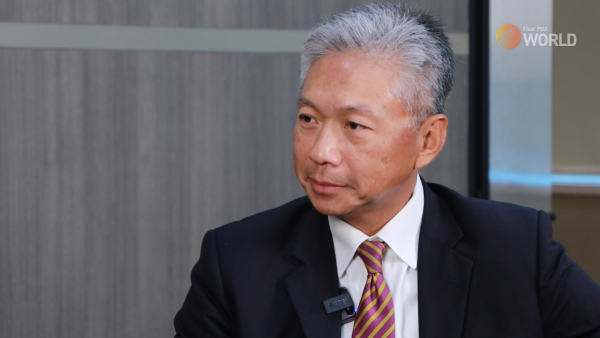
One of Thailand’s domestic banks, however, backs the policy to increase the minimum monthly salary. CEO and President of LH Bank, Shih Jiing-Fuh, expressed his support for Srettha’s economic initiatives, emphasising the critical importance of these measures in revitalising the domestic economy.
“Reviving tourism will help a lot to boost the local economy. I agree with the Thai government’s policy on an increase in the minimum wage. This policy is not only about raising local consumption, but it also fundamentally alleviates household debt problems. If this problem is not resolved, it will affect future consumption negatively. Raising the minimum wage contributes to a more equitable distribution of wealth and is a long-term driver of the local economy,” Shih said.
Shifting the focus to Thailand’s economic strategy, Shih highlighted the importance of diversifying the supply chain, to reduce dependence on specific countries in the region. He pointed out that Thailand possesses unique advantages that make it an attractive destination for foreign direct investment and a potential regional influencer.
“Thailand, among Southeast Asian countries, has a special advantage, which is its open culture that welcomes foreign investors. The Thai government is also committed to building robust infrastructure, with ongoing mega projects such as new motorways and high-speed rail,” he said.
By Franc Han Shih, Thai PBS World
Full interview with Chairwoman of the Joint Foreign Chamber of Commerce, Vibeke Lyssand Leirvag
Full interview with CEO and President of LH Bank, Shih Jiing-Fuh






